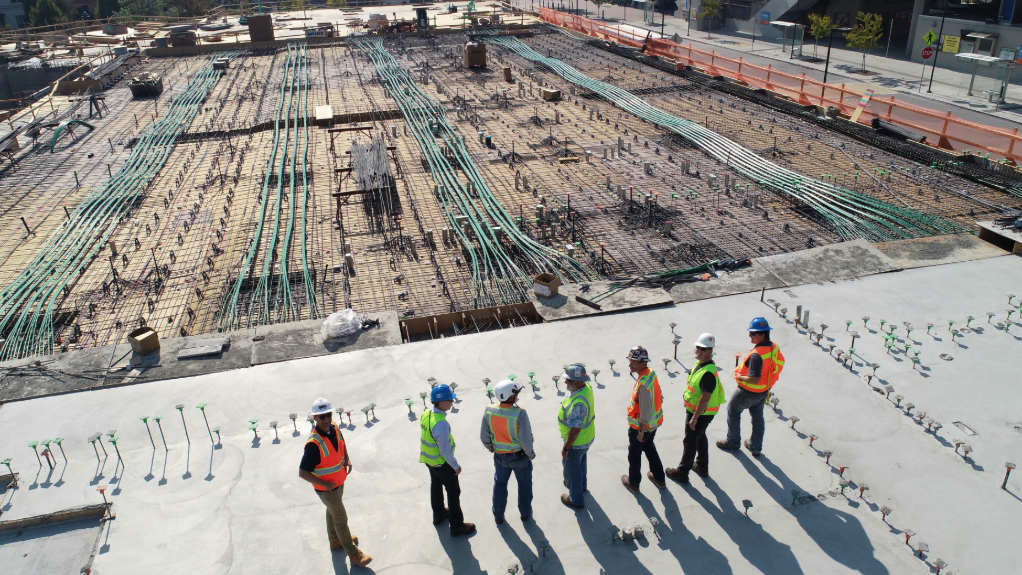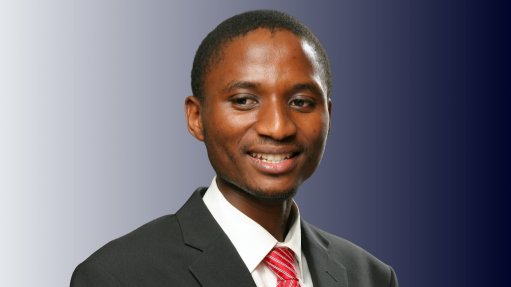AI, automation drives engineering sustainability


DIGITAL TOOL EFFICIENCY Digital tools provide advantages in South Africa where municipal infrastructure requires revitalisation
Technologies such as AI, automation innovations and other digital tools are changing the way in which civil engineering is conducted, going beyond the concrete and steel that typically characterises the construction sector.
In South Africa, these tools bring tremendous opportunity but with it the responsibility to use them ethically and sustainably, amid the rapid transformation in how engineers plan, design and maintain infrastructure.
Professional body for civil engineering South African Institution of Civil Engineering (SAICE) states that it is at the forefront of these changes.
Through partnerships with tertiary institutions, SAICE is helping to integrate AI, digital twins and automation into core engineering practice.
"SAICE is embracing its role as a strategic enabler of digital transformation while staying rooted in the technical excellence that has historically defined the engineering profession,” says SAICE infrastructure working group committee member Dr Marcus Dlamini.
SAICE provides a platform for critical conversations, professional training and ethical leadership in this evolving digital landscape. The institution is guiding civil engineering professionals to think beyond project delivery toward long-term impact, community wellbeing and sustainable innovation.
SAICE notes that South Africa is facing ongoing infrastructure challenges, from project delays to corruption and inadequate maintenance. Here, digital tools offer “real” potential.
“Digitising procurement, evaluation, and adjudication of tenders can dramatically reduce the risk of manipulation and political interference. It enhances transparency and ensures fairness across the system,” explains SAICE advocacy champion Wynand Dreyer.
“Tools like digital twins and predictive maintenance are already yielding results. These technologies have been in use in facility management for years. [Municipal water utilities] such as Johannesburg Water are using digital systems to log and resolve infrastructure faults more efficiently,” he adds.
One such example, is Forcelink’s system, originally developed for facility management, which is now helping Johannesburg Water track and repair faults in real time.
However, these tools only deliver value when paired with collaborative thinking and long-term vision.
“If we’re still operating in silos and only cooperating rather than collaborating across project phases, we miss the full potential of the technologies,” warns SAICE key contributor to IT and digital transformation discourse Marius Bierman.
Skills, Mindsets for a Digital Era
As civil engineering undergoes digital transformation, both the tools and the engineers’ mindsets must evolve. SAICE is addressing this by revamping its Continuing Professional Development framework to include AI, building information modelling and systems modelling. It is also supporting online learning platforms, bootcamps and mentorship initiatives that empower both seasoned professionals and young engineers.
“We’re seeing pioneering projects using AI for structural crack detection, slope stability monitoring, and life-cycle predictions. These systems don’t replace engineering judgement – they enhance it with data-driven insights,” says Dlamini.
To bridge the digital divide, it becomes increasingly important to implement a unique form of reverse mentorship: younger, tech-savvy graduates mentoring experienced engineers on digital tools, while senior professionals guide strategy and project delivery. This blend of experience and innovation is critical in shaping a resilient future.
Ethics, Oversight and Sustainability
The rise of AI introduces both opportunities and complex ethical challenges, ranging from algorithmic bias to data quality and human oversight.
“SAICE advocates for ethical standards focused on transparency, fairness and accountability,” Dlamini confirms.
At the core of these standards is the principle of “human-in-the-loop”; ensuring that even the smartest systems remain subject to professional judgement and contextual understanding.
Sustainability is another major driver of SAICE’s innovation agenda. Engineers use digital tools to model carbon emissions, optimise water use and build climate-resilient infrastructure.
“From dam deflection surveys to hydrology and pavement analysis, engineering has always been a data-rich discipline. What’s changed is the speed, scale and smartness with which we can use that data today,” notes Dreyer.
Article Enquiry
Email Article
Save Article
Feedback
To advertise email advertising@creamermedia.co.za or click here
Press Office
Announcements
What's On
Subscribe to improve your user experience...
Option 1 (equivalent of R125 a month):
Receive a weekly copy of Creamer Media's Engineering News & Mining Weekly magazine
(print copy for those in South Africa and e-magazine for those outside of South Africa)
Receive daily email newsletters
Access to full search results
Access archive of magazine back copies
Access to Projects in Progress
Access to ONE Research Report of your choice in PDF format
Option 2 (equivalent of R375 a month):
All benefits from Option 1
PLUS
Access to Creamer Media's Research Channel Africa for ALL Research Reports, in PDF format, on various industrial and mining sectors
including Electricity; Water; Energy Transition; Hydrogen; Roads, Rail and Ports; Coal; Gold; Platinum; Battery Metals; etc.
Already a subscriber?
Forgotten your password?
Receive weekly copy of Creamer Media's Engineering News & Mining Weekly magazine (print copy for those in South Africa and e-magazine for those outside of South Africa)
➕
Recieve daily email newsletters
➕
Access to full search results
➕
Access archive of magazine back copies
➕
Access to Projects in Progress
➕
Access to ONE Research Report of your choice in PDF format
RESEARCH CHANNEL AFRICA
R4500 (equivalent of R375 a month)
SUBSCRIBEAll benefits from Option 1
➕
Access to Creamer Media's Research Channel Africa for ALL Research Reports on various industrial and mining sectors, in PDF format, including on:
Electricity
➕
Water
➕
Energy Transition
➕
Hydrogen
➕
Roads, Rail and Ports
➕
Coal
➕
Gold
➕
Platinum
➕
Battery Metals
➕
etc.
Receive all benefits from Option 1 or Option 2 delivered to numerous people at your company
➕
Multiple User names and Passwords for simultaneous log-ins
➕
Intranet integration access to all in your organisation



















